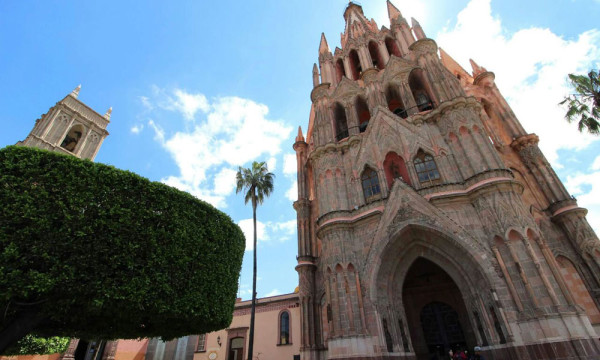San Miguel resident Deborah Bickel published the following story on Mexico News Daily news website on November 11th, 2017.
I received an email in September from someone who had not heard from a friend in San Miguel de Allende who was in the practice of sending near daily emails.
She contacted other friends as well as me to see if we could find out if he was okay.
After the police entered his home with a friend and found no sign of anyone, friends of the missing person (a vigorous man in his early 70s with diabetes) began to search.
The police did not issue a missing persons report because the man was only known to have been missing for a day or two. But by day three his house was cordoned off as police decided it was a crime scene despite the fact that a hungry dog was trapped inside in unseasonable heat.
A few brave souls entered to feed and water the dog, which was locked in a porch area so they didn’t have to enter the house itself.
With help from the United States consular office we searched morgues, hospitals, favorite haunts where our friend liked to hang out, train tracks and deserted fields.
We could not go back into his house to see if there were any clues or signs of foul play. That was claimed to be the purview of the police and we were strictly prohibited from entering “the crime scene.”
As far as we knew the police did not re-enter the house to check for further signs of foul play or the missing body. It may be they did not want to deal with the stench rising from the house as it baked in the warm days of summer.
Two days later friends of the victim entered the house, ignoring the crime scene tape, and found his body. Five days later the police finally agreed to re-enter the house, where they too found our “missing” friend’s body by his bed, where it should have been completely visible the first time they searched.
As expatriates we might expect far better police work and more active involvement from the U.S. consular office. (Note this is not his fault as he is not able to assist in such cases. Once police have declared a crime his purview is extremely limited.)
I have lived in San Miguel de Allende for three years now and have witnessed more than a few unnecessarily agonizing deaths of expatriates. This most recent one has a lot of similarities to a death reported in the Chapala area.
It is not a death at the hands of narcos or through random violence but rather just death by a fall or a simple accident. I would say it is a death made more horrible by lack of planning and community awareness of our vulnerability as visitors and expatriates in a land that has far fewer resources to spend on its own citizens than we northerners may come to expect.
As our lives pass relatively peacefully here in Mexico we may or may not have the good fortune to remain in good health with only the occasional visit to a physician (charging us a fraction of what it costs in the north). We count our blessings and our foresight.
Years may go by but eventually ill health does catch up with us. How many have planned for this in advance? Many do: they get health insurance or go home at regular intervals to see family and take care of health concerns. But as age or illness take their toll, what if those health concerns can’t wait for a leisurely trip north?
As a patient advocate I have seen many an expatriate caught without a Plan B, such a plan being how to manage a chronic cancer, severe cardiac disease, strokes, fractures that shatter brittle bones, cognitive disorders, mental illness — the list goes on.
It is when these illnesses strike that the limitations of your new home may also strike, especially for those living on a limited income.
(There was a similar story in Chapala recently when an elderly expatriate was found dead by another expat and a Mexican physician days after his death.)
San Miguel’s general hospital, as with many smaller government facilities, is not a place a northerner would want to land in a complex emergency. There is no cardiologist or neurologist available, very few workers speak English and it is hard for any outsider to get to you when you need them the most.
Nursing care relies on one person to sit with you, preferably bilingual and a family member, in order to take care of your basic needs. Visiting hours are limited and there is a formidable guard at the front desk.
Give thought to your own Plan B, and whatever would work for you, but now, not when it is too late.
By Deborah Bickel
The writer operates Be Well San Miguel, providing patient advocacy services. She has worked as a physician assistant in the U.S. and Latin America and Africa. She trained at Stanford University Medical School and has a master’s in public Health from UC Berkeley California.

